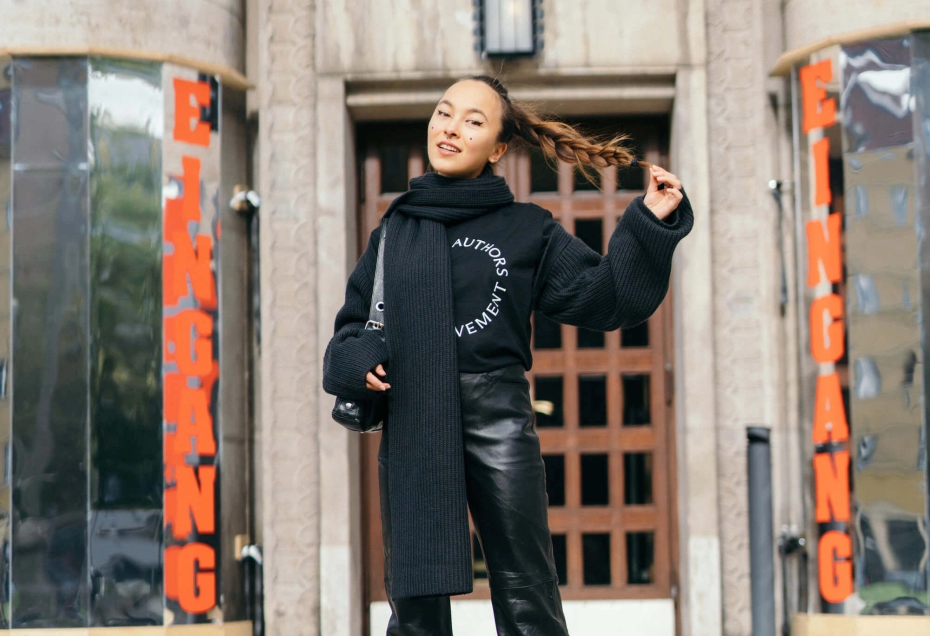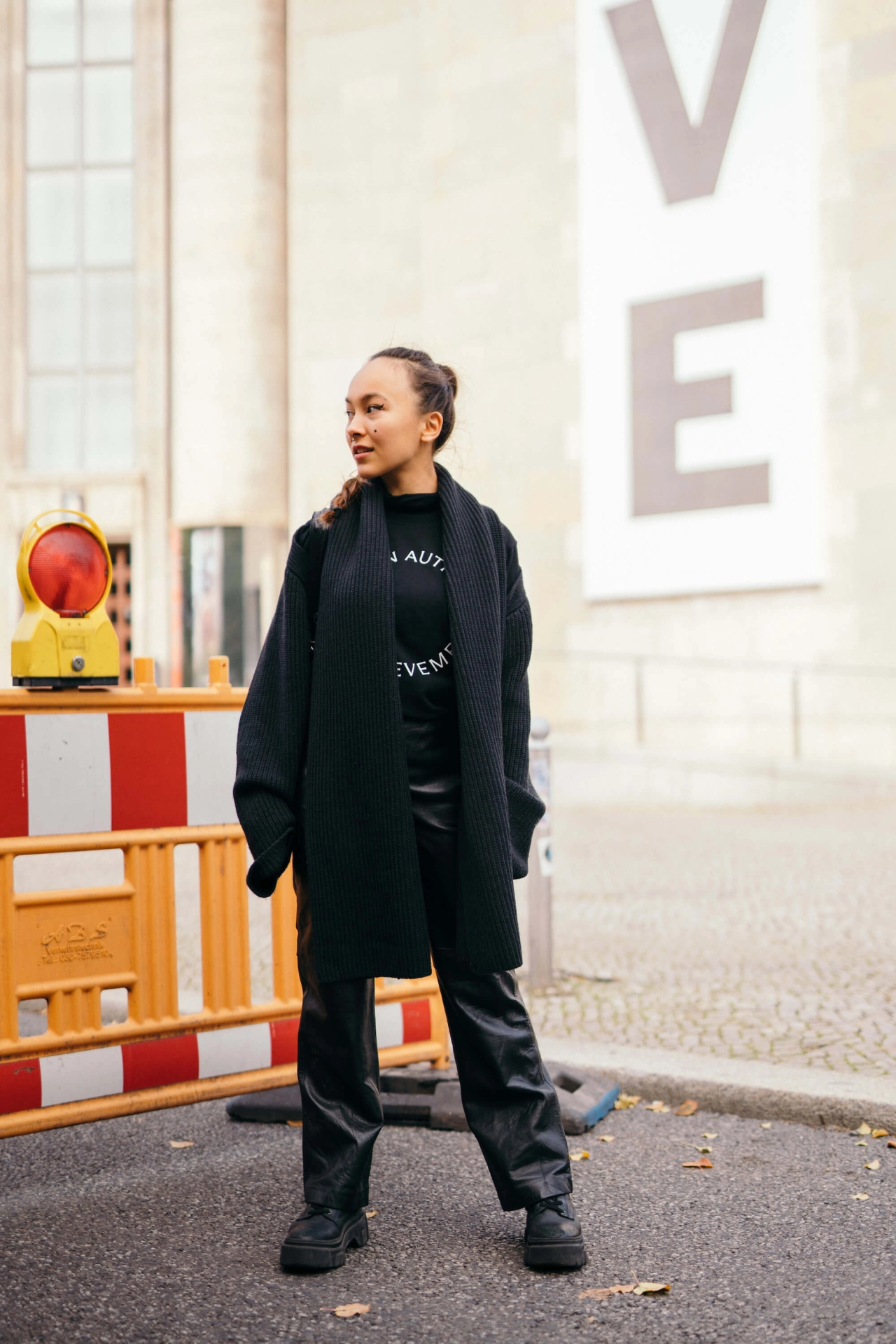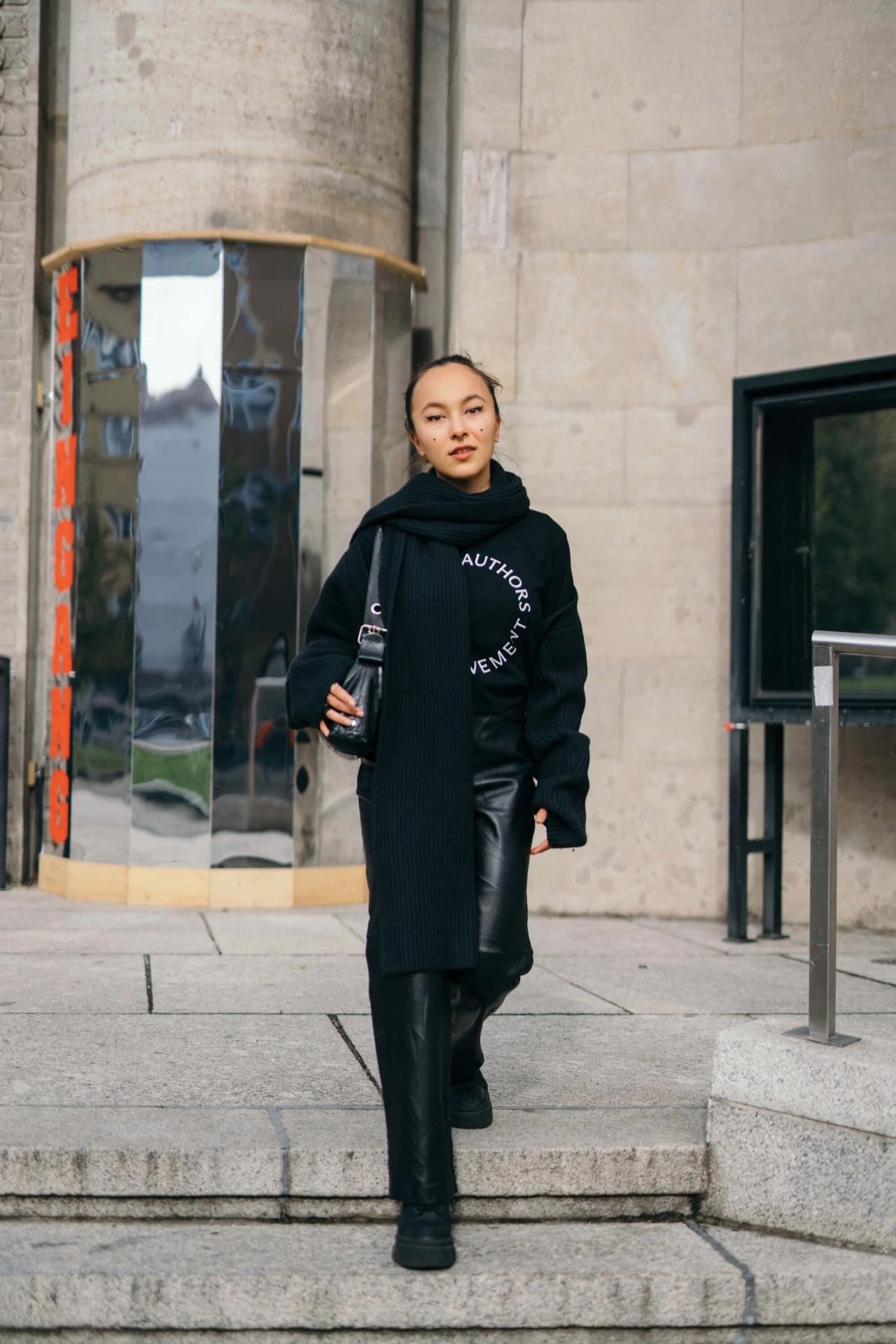Joplyn
Discovering poetry as a child ignited Joplyn’s desire to write her own poems and lyrics. She taught herself basic chords at the age of ten, and continued to hone her sound practice growing up, until she eventually made the switch to electronic music. The rest, as they say, is history. Read on to find out more about Joplyn’s musical background and all the ways in which Berlin continues to influence her creative practice.

How did you find music and what inspired you along the way?
I first started out with poetry when I was five years old. During my school times, on the long commutes I listened to music playlists every single morning and got inspired. One day, I came to the realization that maybe I could try to write my own poetry and lyrics. I found an old keyboard, taught myself four basic chords and then just started experimenting. At first, those poems turned into abstract melodies. Then I got into song structure and it was all just learning by doing, which naturally evolved into making music. I downloaded Ableton, a Berlin-based company that produces software for making music, and eventually made the switch from piano-based music to electronic music.
You were born and raised in Berlin. How did the city influence you?
I would say Berlin is the crux of my creative work, because it’s always been the hub for electronic music, and still is. I grew up on Pappelallee in Prenzlauer Berg, which is one of the loudest streets in the city. Even though I didn't consciously notice it as a kid, it shaped me to always hear music and beats. Also, I was constantly surrounded by people that were expressing themselves. Everyone is just so used to being accepting of everyone and there are so many different niches and subcultures mingling together. I guess you could say that living in a melting pot of creativity predominantly shaped me.
Is the city in any way reflected in your work?
Creatively speaking, most of my songs were written here in Berlin. I named my first album after the street I grew up in, sort of as an ode to the city, and to that street in particular. I also want to continue naming all of my albums after places in Berlin that are special to me. I never travelled that much, so I spent most of my breaks in the city. Every single district in Berlin feels like its own city.


What is so special about Berlin community?
These past years have been very hard for the clubs in Berlin. Together, we kind of made it through. None of the clubs I know of yet have closed down, which is partly because of the community. There were lots of donations given to the clubs, it felt like we were fighting to keep our city alive. And I think that's a very special thing about Berlin.
If I ask you about your Woman Author of Achievement, who comes to your mind?
My number one would definitely be Sade, this is the kind of a woman that got me into music, because I was just always awed by her presence and music. She exudes this confidence as a woman. She never made being a woman part of her music and continued to create, regardless of the barriers that she was probably presented with. I see a lot of myself in her. Some people even say we look alike, which I can kind of see (or want to see) since both of us have such a large forehead. But it’s the biggest compliment, truly. Another woman would probably be Janis Joplin. I wouldn't say that I named myself after her, but she was part of the inspiration for my name because she is also such a powerful woman that stands up for herself. Especially in artistic fields and breaking through the glass ceiling and redefining femininity and gender roles. Lastly, I just released a song and it's in homage to a woman named Maria Severa. She's a Portuguese woman of the 19th century who was one of the pioneers of the fado genre in Portugal. This woman managed to inspire a whole culture with only a guitar and her voice
What’s been your favorite WAA Podcast episode?
I really resonated with Jeannine Koch’s episode (E.021). I'm always inspired by women who have high positions. The thing that made me relate to her so much was that she also grew up in Berlin. I never really experienced Berlin with a wall in between it, but I think a lot of it is still there, the East and the West. I loved how she used the term non-binary. Nowadays it's always associated with gender, but saying she's just a non-binary Berliner that's neither East or West is really cool.
